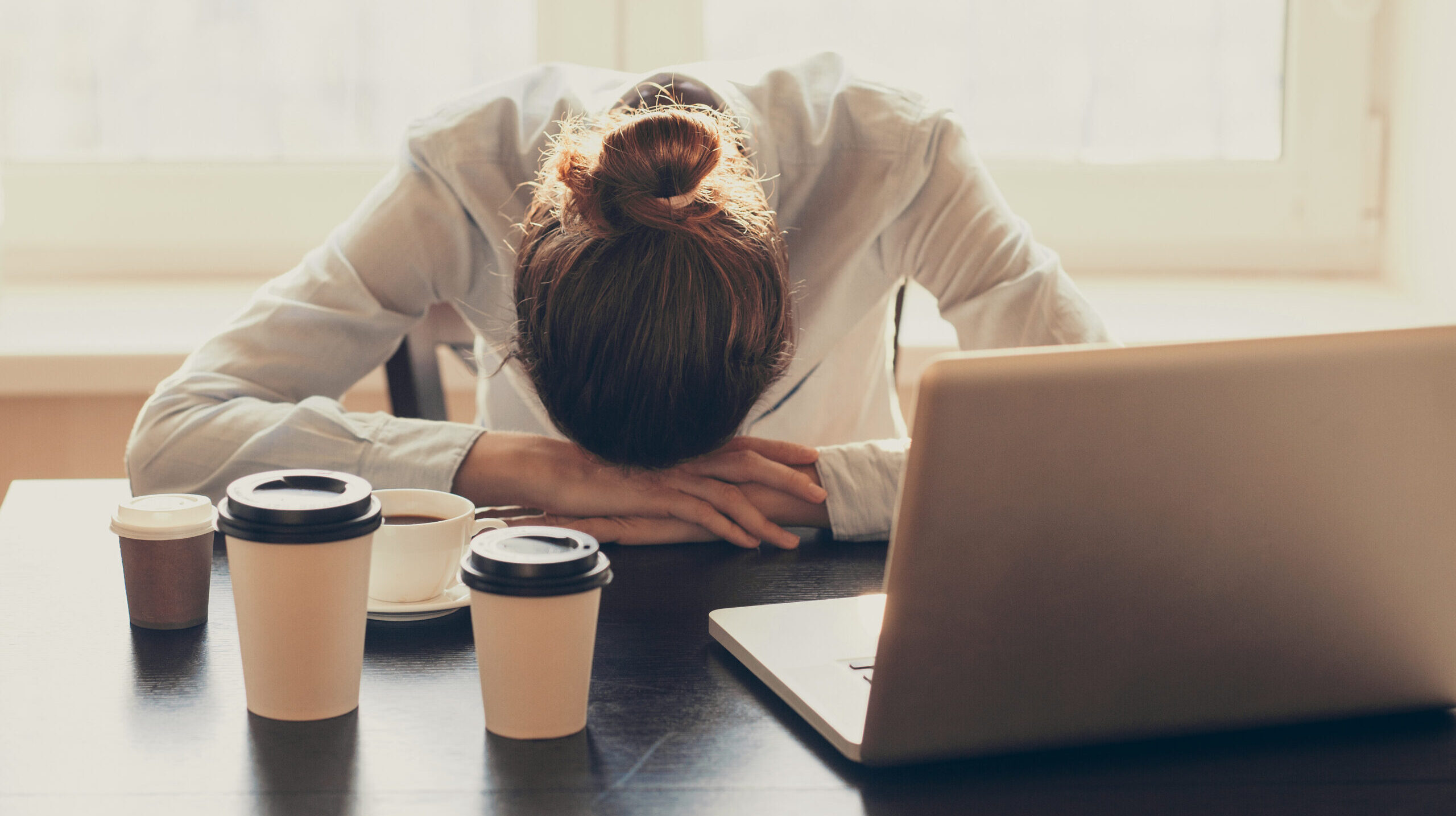In a world of 24/7 hustle, it’s no surprise that many of us feel constantly tired. But it’s a frustrating and limiting way to live. It makes daily life a grind and lowers your overall sense of well-being.
Fatigue can stem from various causes. The good news is that some of these causes can be easily managed with some simple lifestyle adjustments.
In this article, we will explore five common causes of constant tiredness and provide practical solutions to help boost your energy and improve your well-being.
Cause 1: Iron Deficiency

Iron is a vital mineral that helps your body make haemoglobin, a protein in red blood cells. Haemoglobin carries oxygen from your lungs to the rest of your body.
When your body doesn’t have enough iron, it can’t make enough haemoglobin. This can lead to a lack of oxygen in your cells. This can cause feelings of fatigue and weakness.
Fatigue is a common symptom of low iron alongside other symptoms like:
- Shortness of breath
- Dizziness
- Pale skin
Some groups are at higher risk for low iron. This includes menstruating women, pregnant women, vegetarians and vegans, and athletes.
If you suspect you have low iron, consult your doctor. They can diagnose the cause and recommend the appropriate treatment. Treatment for iron deficiency typically involves increasing your iron intake through diet or iron supplements.
To improve your iron levels:
- Eat more iron-rich foods: Incorporate both heme iron (found in animal-based foods like lean red meat, poultry, and fish) and non-heme iron (present in plant-based sources such as fortified cereals, legumes, dark leafy greens, and dried fruits) into your diet. Learn more with our ultimate iron-friendly shopping list.
- Enhance iron absorption: Improve iron uptake by combining iron-rich foods with vitamin C-rich fruits and vegetables. Additionally, cooking vegetables can increase the bioavailability of non-heme iron.
- Avoid iron blockers: Reduce consumption of substances that can hinder iron absorption, such as tannins (found in tea, coffee, and wine), phytates (present in whole grains), and calcium-rich foods.
- Use iron supplements as prescribed: Supplements like Maltofer can help restore iron stores if ferrous supplements are not tolerated or otherwise inappropriate. Maltofer is an iron supplement that can support healthy iron levels and is less likely to cause constipation compared to ferrous sulfates.
It’s important not to self-diagnose iron deficiency. If you think your iron levels are low, consult a doctor for appropriate diagnosis and treatment.
Cause 2: Lack of Sleep

Many people feel tired simply because they don’t get enough quality sleep. We all have a bad night now and again. Over time, however, sleep problems can lead to fatigue. Fatigue is more than just tiredness; it’s also:
- A reduced capacity or motivation for work
- Weariness
- Sleepiness
- Irritability
- Loss of ambition
To improve your sleep quality and fatigue-related feelings, try these evidence-based sleep tips:
- Avoid drinking alcohol before bed: Although alcohol can sometimes make you fall asleep, it leads to less restful sleep. As a result, you may feel tired the next day, even if you get eight hours of sleep.
- Establishing a regular sleep routine: Try to go to bed and wake up at the same time each day. Where possible, avoid taking naps during the day.
- Creating a relaxing sleep environment: Dim the lights, shut out the noise (including mobile devices!), and optimise the temperature to help create a sleep-friendly space.
- Limit caffeine intake, especially in the evening: Caffeine can disrupt sleep rhythms.
- Get physical! Being active is a great way to improve sleep quality. But it’s best to avoid excessive exercise close to bedtime.
Cause 3: Poor Diet

Your body needs the right kind of fuel for the many jobs it does to keep you alive. With the proper fuel, you can feel mentally alert and physically energised. But a poor diet can lead to energy crashes and sluggishness.
A poor diet can look like a lot of different things, including:
- Skipping meals or going extended periods without eating can cause blood sugar levels to drop, resulting in an energy crash.
- Having a diet high in fat, sugar, and salt but low in fruits, vegetables, whole grains, lean protein, and low-fat dairy. This diet can deprive the body of the nutrients it needs to function properly.
- Overeating, especially large meals, can also drain energy. Digesting a large amount of food requires a lot of energy, leading to feelings of tiredness.
- ‘Pick-me-up’ foods, such as chocolate bars or sugary drinks, provide only a short-term energy boost that quickly fades, often followed by a crash. These foods are typically high in sugar, which causes a rapid spike in blood sugar followed by a rapid drop, leaving you feeling tired and sluggish.
- Low-kilojoule or low-carbohydrate diets may not give your body enough fuel to function at its best, contributing to fatigue. Restrictive diets can also lead to nutrient deficiencies and inadequate energy intake.
To feel your best, follow these simple tips:
- Eat regularly: Don’t skip meals, especially breakfast.
- Eat more nutrient-rich foods: Focus on fruits, vegetables, whole grains, lean proteins, and low-fat dairy.
- Manage portion sizes: Avoid overeating.
- Address iron intake: Include iron-rich foods like lean meats, poultry, fish, and plant-based iron sources.
- Limit caffeine and alcohol: Reduce intake to improve sleep quality.
Cause 4: Stress and Mental Health Issues
Prolonged stress, anxiety, and depression can significantly contribute to fatigue and deplete energy reserves.
- Stress: Stress triggers a physiological response, releasing hormones like adrenaline and cortisol. This response is designed for short-term survival. But it becomes harmful when stress is chronic, leading to exhaustion. Stress can also disrupt sleep, making fatigue worse.
- Anxiety: Persistent worry and tension can disrupt sleep patterns, leading to fatigue.
- Depression: Feelings of sadness, dejection, and hopelessness are closely linked with fatigue. Low mood can sap motivation and overwhelm even simple tasks, contributing to energy depletion.
To revive your energy levels following periods of stress or mental health struggles, try incorporating some of the following relaxing activities into your weekly schedule:
- Any exercise that you find enjoyable and easy to do
- Yoga or mindfulness breathing exercises
- Listening to music
- Reading for pleasure
- Socialising with friends and family who ‘fill your tank’
- Addressing stressors such as work-life balance, relationship conflicts, and financial pressures.
Seek professional help if your fatigue or mental health struggles are persistent or impacting your daily life. Talking therapies like counselling or cognitive behavioural therapy (CBT) may help combat fatigue associated with stress, anxiety, or low mood.
When to See a Doctor

If you still feel tired — despite making some of the lifestyle changes mentioned above — seek medical advice. You may want to get a blood test to check for deficiencies or to find the root cause of your fatigue.
If your fatigue is related to iron deficiency, speak to a healthcare professional about using iron supplements, such as Maltofer, to help boost your iron levels where ferrous iron supplements are not tolerated or cannot be used.





